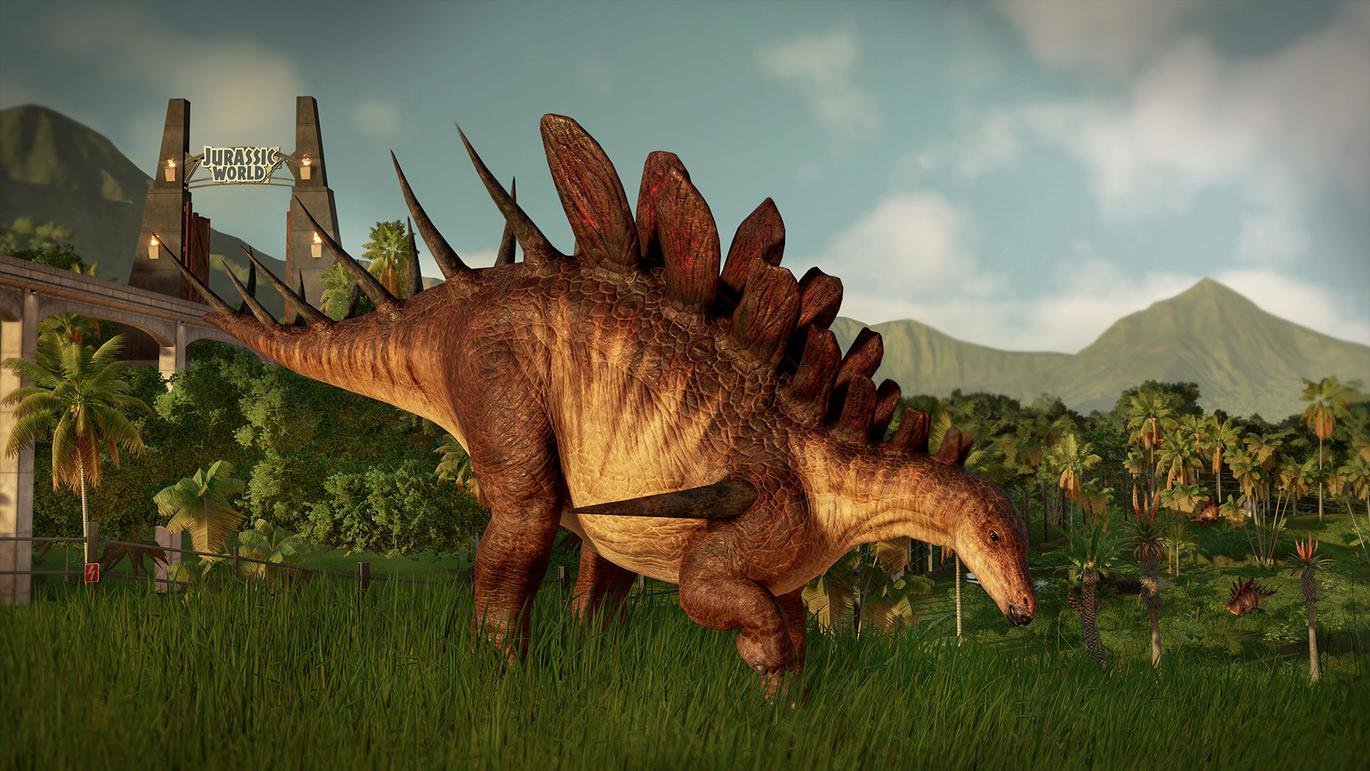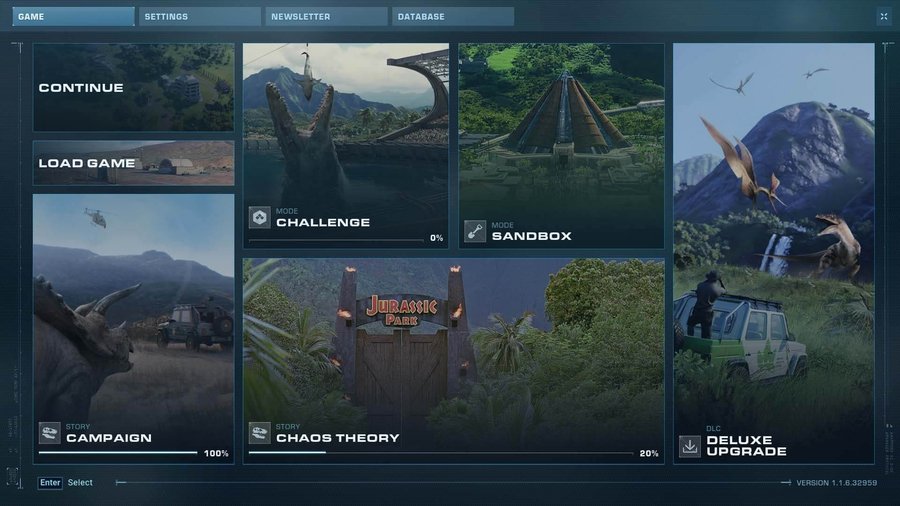
What is Jurassic World Evolution 2 and how can I talk with my child about the game?
Jess on Jan. 15, 2025
What's the appeal with management and world-building games like Jurassic World Evolution 2, and are they safe for my child?
The genre “management games” might not instantly spark excitement – they don’t typically feature fast-paced action or edge-of-your-seat drama. But for those of us who grew up with classics like Zoo Tycoon or SimCity, these games hold a nostalgic charm. There’s something deeply satisfying about building, managing, and strategising your way through virtual worlds.
And tamariki and rangatahi today are still hooked on these games – a popular one is Jurassic World Evolution 2, a game where players can manage and build their own dinosaur park, facing challenges like creating safe enclosures and keeping visitors happy.
Management games cater to all sorts of interests. The tips and advice shared in this blog for Jurassic World Evolution 2 can be helpful for other management games as well, such as Planet Zoo, Zoo Tycoon, or Planet Coaster, where players can design and run their own wildlife sanctuaries or build theme parks filled with thrilling rides. Each game offers its own challenges and opportunities for creativity, but the general guidelines on managing content, difficulty, and age appropriateness broadly apply across the genre.
What is the game, how does it work?
So, what is it about management games that keeps drawing players in across generations?
At their core, management games are about creating something from the ground up. Whether it’s building the ultimate zoo or running a theme park, these games combine creativity with strategic thinking. Players aren’t just tasked with making things look cool – they have to manage resources, overcome challenges, and keep everything running smoothly. It’s like being the CEO of your own digital world.
Jurassic World Evolution 2 features over 75 prehistoric species, including flying and marine reptiles, with advanced behaviours, customization options, and bioengineering. It has four game modes:
- Campaign: Play through an original story set after Jurassic World: Fallen Kingdom, where you manage dinosaurs with the help of characters from the movies like Dr. Ian Malcolm and Claire Dearing.
- Chaos Theory: Revisit key moments from the Jurassic World franchise in "what if" scenarios, allowing players to control and alter events from the films.
- Sandbox: Create and manage your own dinosaur park using assets from both the Jurassic Park and Jurassic World eras in an open-ended, creative mode.
- Challenge: Test your management skills with missions of increasing difficulty, earning star ratings to unlock more challenging park-building tasks.

What do the kids say?
We sat down with a 15-year-old to hear all about his favourite management game, Jurassic World Evolution 2, which he plays on his PC using the digital platform Epic Games. He says one of the best features of the game is that it lets players step into the shoes of the movies themselves, emulating the challenges and chaos of the Jurassic World universe.
The young gamer says Jurassic World Evolution 2 is a good opportunity to learn to build your own city. But it’s not just any city – we’re talking about parks filled with roaring dinosaurs, epic enclosures, and the constant challenge of keeping everything (and everyone!) under control.
In general, management games are often a safer choice compared to other genres. While some games might include mild violence or moments of suspense (like dinosaurs attacking guests in Jurassic World Evolution 2), the content is typically minimal and unrealistic.
According to the young gamer, even when dinosaurs attack or scratch park guests, it’s not graphic or overly detailed. He described it as “a little bit violent but not that bad.”
He says that in Jurassic World Evolution 2, you can tweak the settings so that dinosaurs don’t die of starvation or dehydration, or ensure that eggs always hatch successfully, among other things. This makes the game accessible for younger or less experienced players who might find some challenges too stressful.
What do we (Classification Advisors) say about it?
When it comes to Jurassic World Evolution 2, the violence in the game serves as a consequence of short-term failure rather than something players are encouraged to actively engage with. For instance, when dinosaurs escape, it reflects the challenges of park management and adds stakes to the gameplay. These moments of danger give meaning to both successes and failures, aligning with the thrilling atmosphere of the Jurassic Park and Jurassic World universes.
While some players might deliberately provoke these accidents just to see what happens, the real satisfaction comes from successfully growing their park into a thriving, well-oiled machine.
Consequences are a critical part of what makes video games interactive and engaging. A game that reacts to players’ choices, whether those choices lead to success or failure, creates a more immersive and meaningful experience. Each decision carries weight, making the journey feel more rewarding.
This concept isn’t unique to Jurassic World Evolution 2. In older management games like RollerCoaster Tycoon, players had to consider ride safety or risk their guests being thrown off malfunctioning rides. In The Sims, players could accidentally (or intentionally!) neglect to add pool ladders, leaving their Sim character to drown. These games show that consequences don’t need to be overly graphic to have an impact, they simply need to support the player's sense of agency and make success feel earned.
Violence in entertainment, when used thoughtfully, isn’t inherently negative. A bit of danger or consequence can add to the thrill, even within the calmer, more creative world of management sims.
Does it have a classification in NZ?
In New Zealand, Jurassic World Evolution 2 is rated M with a warning for violence. This rating means the game is open to all, but it's most appropriate for mature audiences aged 16 and older. While platforms like Steam show the M rating, other platforms may display international classifications, such as the 16+ rating from The International Age Rating Coalition. You can find more information about international game classifications here.
It’s always a good idea to check our Find a Rating page and our Gaming Resource Hub to see if a game has been classified in New Zealand, as these ratings are tailored to our audiences and provide the most relevant guidance.
Are parental controls an option?
As our 15-year-old gamer shared with us, Jurassic World Evolution 2 provides a range of settings to make the game more accessible to players.
Parental controls can vary depending on the gaming platform your child uses, so it's a good idea to check the specific controls for each platform (i.e. Epic Games, Steam). You can learn more about them here.
As it is a single player game, parents don’t have to worry about open chat or voice communication with strangers.
While you’re here just be aware
While management games are generally low on explicit content, it’s important to remember that every child has their own comfort level. For some, the suspense of failing or the pressure of keeping everything running smoothly might feel overwhelming. This can lead to unnecessary stress so it’s worth checking in with your child. Explore the settings available to make the game more enjoyable if needed.
It’s also a good idea to research the specific game your child is interested in. Some management games come with upfront costs or in-game purchases, so make sure you’re aware of what’s involved before you go ahead and buy it. In-app advertising can also be an unwanted feature of some “free’ games.
Helping rangatahi manage stress while playing
Whether they’re playing in the living room or tackling the game on their own, games can stir emotions when things don’t go as planned – like when a dino escapes or a park fails. Here’s how you can help your child manage those moments.
- It’s okay to feel upset: Losing control of a dinosaur or not completing a challenge can feel tough, and it's important to acknowledge their feelings of frustration.
- Focus on progress: Shift the focus from winning to learning. Highlight their improvements like how far they’ve come with building enclosures or managing their park. This helps them see progress and stay motivated.
- Take a breather: When emotions run high, encourage a quick break or calming strategy, like taking deep breaths or stepping away for a few minutes. A little reset can make a big difference.
- Turn challenges into lessons: Help your child view setbacks as chances to learn and improve. For example, after a setback, talk with your child about ways they could do better next time.
- It’s all about having fun: Remind your child that video or online games should be about having fun. Share your own moments of challenge in games to show that everyone has ups and downs.
Further reading:
Subscribe to our blog
Stay up to date with the Classification Office blog.


